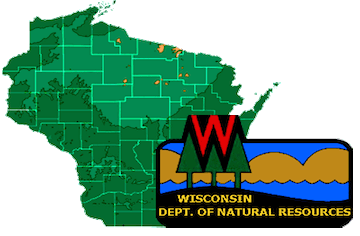August 7, 2015
Last Tuesday, July 28, 2015, the Wisconsin DNR announced its plans to restructure the agency in response to significant funding cuts handed down from the state legislature, ultimately dismantling the Division of Water, all in the name of streamlining and efficiency. The announcement comes on the heels of Governor Scott Walker’s campaign trail statement that if elected president he would likely cut the entire federal Environmental Protection Agency (EPA), and give their responsibilities to the States. There are still many questions out there, but here is what we know!
The Division of Water has been repurposed and divided into two.
The DNR would consolidate many responsibilities for water and air pollution into a single division and streamline other areas. Several important divisions would be placed into a separate office called the Office of Business Support and Science, which assists businesses in acquiring permits. This new division is being led by a former staffer at the Wisconsin Manufacturers and Commerce (or WMC) and would cover issues related to shoreland zoning, dam safety, wetland protection, and pollution runoff. Other water regulatory functions (e.g., issuing permits to dischargers and developers to protect drinking water, groundwater and surface waters) are being consolidated with the air division.
The Bureau of Science Services has been eliminated.
The reorganization also eliminated the Bureau of Science Services and cut 18 positions. As part of the reorganization, the research work will be folded into various departments. Our State’s natural resources are facing massive challenges ranging from a changing climate, more frequent and volatile storms, an insurgence of invasive species that are dramatically changing the ecology of our waters, proposed water diversions, and aging infrastructure that impacts business, access, fish and wildlife, and recreational opportunities. This is not the time to eliminate our well-respected Science Bureau.
The agency’s reorganization makes one thing clear: The DNR’s priority under the current administration is about better serving business and not about protecting the natural resources of our great State – including our air and water. Clean water is fundamental to our public health, our quality of life, and our $8-12 billion water-based economy.
What does this mean for the future health of the Milwaukee River Basin?
Eliminating the Division of Water could mean less resources and staff necessary to implement crucial regulatory and management programs, as well as curtail DNR staff’s ability to collaborate with community partners like Milwaukee Riverkeeper. We have partnered with the DNR for several decades now on improving our volunteer water quality monitoring program, and helping DNR obtain the data it needs to make sound management decisions that affect our waters and fisheries. We also partner on work to restore and cleanup local rivers from a legacy of contamination, and many of our DNR staff contacts are already strained to the limit. It’s unclear whether this reorganization will solve any problems or exacerbate existing ones. It could be just re-arranging chairs on the Titanic if fundamental resource problems are not addressed. Cutting more staff makes these problems worse, and actually increases time needed to permit a project properly.
We’ll be keeping a close eye on how the DNR restructuring develops in the near future with many of our State and local partners. While streamlining and efficiency sound great in theory, in reality, they often can lead to cut corners, miscommunication, less effective implementation of projects, and less enforcement of environmental laws. Sometimes the answer to getting more work done, especially when the work is as important as maintaining the health of our rivers and streams and the health of our communities, is committing to hire an adequate number of qualified staff to complete the work.
We urge you to contact your State legislators to advocate for the DNR, and in particular, tell them to maintain the Division of Water, which is essential is to maintaining the health of our waterways, our communities, our quality of life, and our economy in the Milwaukee River Basin and in the State of Wisconsin.
Read the DNR Reorganization Memo here!

